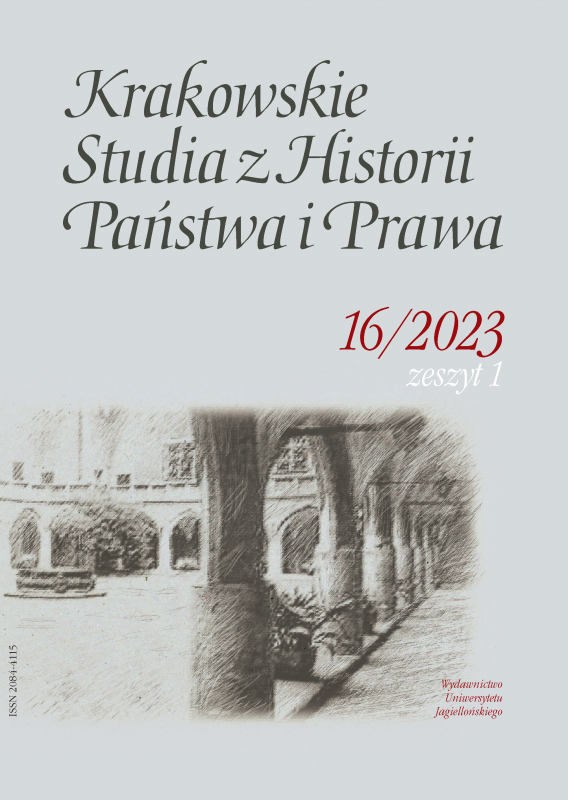Wizerunek pełnomocnika procesowego w polskich utworach literackich i piśmiennictwie politycznym XVI i XVII stulecia
The Image of an Attorney as Illustrated in Works of Polish Poets and Political Writers in the 16th–17th Centuries
Author(s): Kacper GórskiSubject(s): Language and Literature Studies, Law, Constitution, Jurisprudence, Media studies, Studies of Literature, 17th Century, 18th Century, Sociology of Law
Published by: Wydawnictwo Uniwersytetu Jagiellońskiego
Keywords: attorney; advocate; lawyer; image of lawyer; greediness; dishonesty; literature; political writings; Poland; Polish-Lithuanian Commonwealth
Summary/Abstract: The article presents the image of an attorney as characterized in Old Polish literature of the 16th and 17th centuries. It reflected, to some extent, the attitude of the people of the time (primarily the nobility) towards the legal profession. There is no doubt that Old Polish society’s perception of attorneys was unequivocally negative. They were portrayed as greedy, dishonest men, liars with no respect for the law, and even instigators of non-compliance with the law. Literary works and political writings broadly condemned such behaviors. However, this stereotype applied only to professional attorneys-at-law. By no means were non-professional agents (attorneys-in-fact) attacked, nor was the institution of the power of attorney itself criticized. It seems that this sort of critical attitude was not estate-based (lots of attorneys were noblemen), although it is possible that the low descent of lawyers influenced the virulence of the criticism. The paper attempts to answer the question as to what extent the literary image of an attorney corresponded to reality. It seems that the works comprised objective reflections on the legal profession and the emotional attitudes of individuals (including authors themselves) or social groups. It is noteworthy that these pieces of literature often regarded the entire Polish legal system of the time as dysfunctional. Nevertheless, the recurrence of motifs such as greediness or dishonesty gives reason to believe that at least some of these allegations were not unfounded. At the same time, it should be noted er corresponded with the stereotype present in European and non-European culture from antiquity to contemporary times.
Journal: Krakowskie Studia z Historii Państwa i Prawa
- Issue Year: 16/2023
- Issue No: 1
- Page Range: 1-20
- Page Count: 20
- Language: Polish

